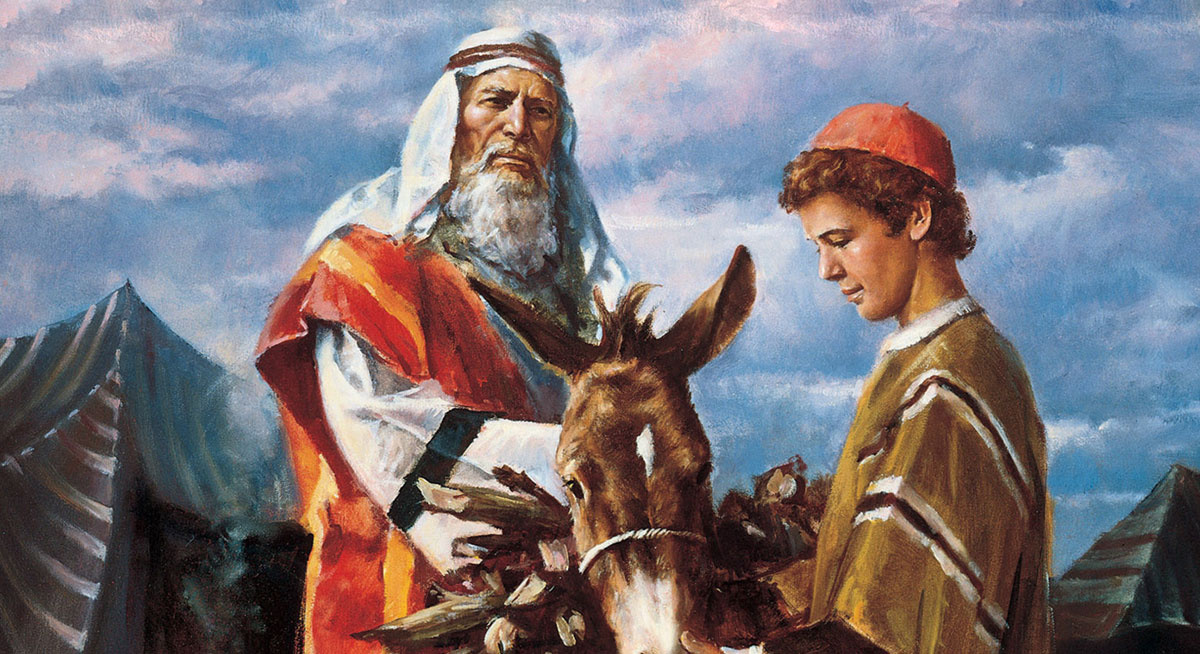Last week, I spent time on the story of Timothy and saw a great example of how if we’re interested in the things of God, we can successfully serve Him. This week, I want to focus on Isaac, the second patriarch.
The Story of Isaac
Genesis 17-18
Isaac’s story begins with a promise from God to Abraham. Despite their old age, God tells Abraham and Sarah that they will have a son. Abraham is 100 years old, and Sarah is 90. Sarah laughs at the idea, doubting the possibility due to their age.
God instructs that the child should be named Isaac, meaning “laughter,” as a reminder of Sarah’s initial reaction.
Genesis 21:1-7
Isaac is born to Abraham and Sarah as God had promised. This marks the fulfillment of God’s promise, making Isaac the child through whom God’s covenant with Abraham will continue.
On the eighth day after his birth, Isaac is circumcised as a sign of the covenant between God and Abraham.
Genesis 21:8-21
As Isaac grows, Sarah notices Ishmael (the son of Abraham and Hagar) mocking Isaac. Fearing for her son’s inheritance, Sarah asks Abraham to send Hagar and Ishmael away.
Despite his reluctance, Abraham follows God’s instruction to listen to Sarah, and Hagar and Ishmael are sent away, leaving Isaac as the sole heir.
Genesis 22:1-19
God commands Abraham to sacrifice Isaac as a test of his faith. Abraham obediently takes Isaac to Mount Moriah, preparing to offer him as a burnt offering.
Isaac, carrying the wood for the offering, notices the absence of a lamb and asks his father about it. Abraham responds that “God himself will provide the lamb.”
Just as Abraham is about to sacrifice Isaac, an angel of the Lord stops him, and a ram is provided as a substitute. This event reinforces Abraham’s faith and God’s provision.
Isaac as an adult
Genesis 24
As Isaac grows older, Abraham wants him to have a wife from his own people rather than from the Canaanites. He sends his servant, Eliezer, to find a suitable wife from his family in Mesopotamia.
Eliezer prays for guidance, and God answers his prayer by leading him to Rebekah, a kind and generous woman from Abraham’s extended family. She agrees to marry Isaac and travels back with Eliezer.
Isaac marries Rebekah, and they find comfort in each other, especially after the death of his mother, Sarah.
Genesis 25:19-28
Rebekah experiences a difficult pregnancy with twins who struggle within her. She inquires of God, and He reveals that two nations are in her womb and that the older will serve the younger.
Esau is born first, red and hairy, followed by Jacob. Esau becomes a skillful hunter, while Jacob is described as a quiet man who stays at home.
Genesis 26
During a famine, Isaac considers going to Egypt, but God instructs him to stay in Gerar, where He reaffirms His covenant with Isaac, promising to bless him and his descendants.
Fearing for his safety, Isaac tells the locals that Rebekah is his sister, similar to his father, Abraham’s earlier deception about Sarah. King Abimelech discovers the truth and confronts Isaac, but he allows them to stay under protection.
Isaac becomes very prosperous, leading to envy among the Philistines. They stop up his wells, causing Isaac to move and dig new wells, showing his patience and God’s favor.
Genesis 35
Isaac dies at the age of 180. Both Esau and Jacob come together to bury their father in the cave of Machpelah, where Abraham and Sarah were also buried.
The difference with Timothy
Isaac is often remembered for his faith and obedience, particularly in the story of his near-sacrifice. He is one of the patriarchs, and God refers to Himself as the “God of Abraham, Isaac, and Jacob,” emphasizing the continuation of His covenant through Isaac’s lineage.
Isaac’s life represents a mix of divine promise, familial challenges, and unwavering faith, and he plays an very important role in the lineage that would eventually lead to the formation of the nation of Israel and the coming of the Messiah.
Aside from all of this, Isaac himself didn’t do anything noteworthy (in my eyes at least). All we know about him are things that happened to him and not things he did by himself.
His birth was a promise, he never questioned his near-sacrifice, his mother sent away his half-brother, he didn’t find his wife himself, his children deceived him, etc. Aside from continuing the covenant between God and Abraham, there’s not much to say about him.
This realization is what really surprised me because Timothy, on the other hand, had no miraculous backstory and yet he was able to actively contribute to the Kingdom of God, whereas Isaac, who was literally a promised child, didn’t stand out much.
I believe the bottom line is that our lineage doesn’t define us. We cannot rely on the faith or accomplishments of our parents; instead, we must discover our own passion and calling to fulfill our God-given destinies. What’s the point of being born into promise if we end up living in the shadows? Regardless of where we come from or the challenges we encounter, we owe it to ourselves and to God to make our lives meaningful. It doesn’t have to be something huge or visible to the world, but we shouldn’t simply live day by day and leave without leaving a legacy.
When we look at Isaac’s story, his legacy is often tied to his miraculous birth, but what about his life? What can we say about the years he lived or the impact he made? There isn’t much recorded about his actions beyond continuing the covenant between God and Abraham.
I pray that none of us pass on without fulfilling our divine purpose or making a positive impact in the lives of others. Let us strive to live in such a way that our stories inspire others and bring glory to God, leaving behind a legacy of faith, love, and service.
Stay Blessed x



One response to “Isaac: The Fulfillment of God’s promise”
Thank you Faith. Great insight and reflection. Keep it up.